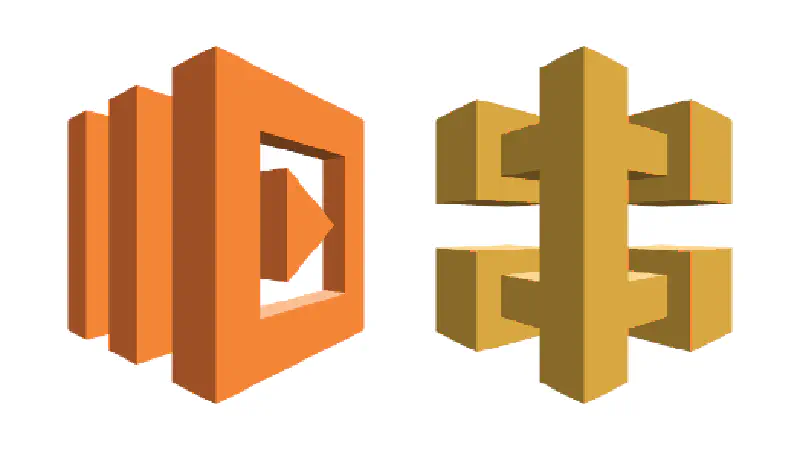TL;DR
- Use the Serverless Application Model (SAM) AutoPublishAlias parameter to have CloudFormation automatically version and alias your Lambdas upon deployment
- Reference your Lambda Alias from your OpenAPI definition
- Deploy
Source Code
The source code and instructions to build and deploy this example to AWS can be found here: https://github.com/karlkyck/api-gateway-lambda-autopublishalias. Running this example on AWS will incur costs so be sure to delete the CloudFormation stacks when you are finished experimenting.
SAM (Serverless Application Model) Template
Begin by defining your SAM template. By specifying the AutoPublishAlias parameter in our Globals section applies the AutoPublishAlias parameter to each of the functions defined in the template.
AWSTemplateFormatVersion: '2010-09-09'
Transform: AWS::Serverless-2016-10-31
Parameters:
DeploymentBucket:
Type: String
Globals:
Function:
Runtime: nodejs10.x
Timeout: 180
AutoPublishAlias: live
Resources:
ApiGatewayApi:
Type: AWS::Serverless::Api
Properties:
StageName: live
EndpointConfiguration: REGIONAL
DefinitionBody:
'Fn::Transform':
Name: AWS::Include
Parameters:
Location: !Sub s3://${DeploymentBucket}/openapi.yaml
ListPostsFunction:
Type: AWS::Serverless::Function
Properties:
Handler: ListPostsHandler.handler
CodeUri: ./dist
Events:
ApiGatewayApiEvent:
Type: Api
Properties:
RestApiId: !Ref ApiGatewayApi
Path: /api/posts
Method: get
In the above CloudFormation, live is specified as
the Alias name for our newly deployed Lambda. When CloudFormation
deploys this Lambda for the first time it will automatically create a
new Lambda Version of 1 and a Lambda Alias called live. CloudFormation
will point the Lambda Alias live to the newly created Lambda Version
1.
When there is an update to the Lambda code, upon deployment CloudFormation will create a new Lambda Version using the previous Lambda Version number incremented by 1. CloudFormation will then point the Lambda Alias ‘live’ to this new Lambda Version.
The SAM template defines the API Gateway resource that references an OpenAPI specification. The OpenAPI specification describes the API and also links API endpoints to Lambda resources within the SAM template. See how to use OpenAPI with API Gateway for more details.
OpenAPI Specification
The key here is to specify the Lambda Alias when making reference to a Lambda from the OpenAPI specification. If the Lambda Alias is left out when making reference to a Lambda function the API call will not work.
---
openapi: 3.0.0
info:
title: API Gateway Lambda AutoPublishAlias Example
version: 1.0.0
paths:
/api/posts:
get:
summary: List Posts
operationId: listPosts
responses:
'200':
description: Retrieve the list of Posts
content:
application/json:
schema:
'$ref': '#/components/schemas/ListPostsResponseBody'
x-amazon-apigateway-integration:
uri:
Fn::Sub: arn:aws:apigateway:${AWS::Region}:lambda:path/2015-03-31/functions/${ListPostsFunction.Arn}:live/invocations
httpMethod: POST
type: aws_proxy
components:
schemas:
BasePost:
type: object
required:
- title
- description
- publishedDate
- content
properties:
title:
type: string
description:
type: string
publishedDate:
type: string
format: date-time
content:
type: string
Post:
allOf:
- $ref: '#/components/schemas/BasePost'
- type: object
required:
- id
- createdDate
- updatedDate
properties:
id:
type: string
createdDate:
type: string
format: date-time
updatedDate:
type: string
format: date-time
ListPostsResponseBody:
type: array
items:
$ref: '#/components/schemas/Post'
The important line is:
Fn::Sub: arn:aws:apigateway:${AWS::Region}:lambda:path/2015-03-31/functions/${ListPostsFunction.Arn}:**live**/invocations
Wrapping Up
Upon deployment the API Gateway endpoint will point to a Lambda Alias. If in an emergency a rollback is required the Lambda Alias can be repointed to a previous version. This can be done manually through the AWS Console. There is a way to automate this process which will be covered in a separate blog post.
